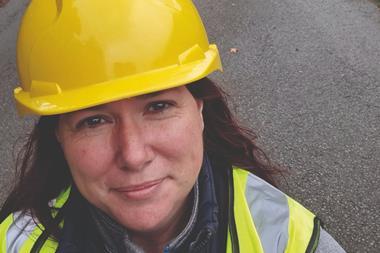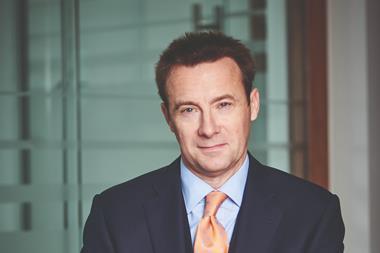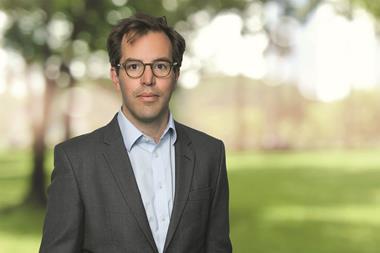In an uplifting episode of PropCast, Richard Threlfall sets out the pressures that will force businesses to act on the climate crisis, as well as the opportunities and challenges created by the infrastructure of the future.
You can listen to this podcast via Apple Podcasts or Spotify or SoundCloud or listen to it through the player below:
In 2019, America’s trade body representing CEOs – who lead companies worth a combined $9 trillion – revised its statement on the purpose of a corporation.
Overruling every statement it had made since its founding, the Businesses Roundtable declared that businesses exist for the benefit of all stakeholders, not just those who own shares. Businesses, it said, also have a duty to serve customers, employees, suppliers, and communities.
Richard Threlfall, partner and former global head of infrastructure at KPMG, says the declaration represents a shift in attitudes that businesses will soon be unable to ignore. He’s now the head of KPMG Impact, the company’s specialist ESG platform supporting clients across the UN’s seventeen sustainable development goals, and his work has furnished him with refreshingly optimistic views about the future of business ethics, technology, and infrastructure.
Threlfall thinks that in the next five years, laws will be introduced that force companies to disclose their ESG performance. Regulatory developments are already well on their way, with global bodies like the US Securities and Exchange Commission, the European Union, and the International Sustainability Standards Board all producing standards for ESG measurement which are currently out for consultation.
When companies are forced to disclose their impact on the climate, and these standards make them directly comparable, they will face ‘the full weight of customer pressure’. Threlfall thinks those that aren’t up to scratch will be out of business within 10 or 15 years time.
Disclosure legislation will also propel ESG assurance in audit services into the spotlight, as demand will surge for accurate and reliable reporting. Debate rages in Europe about whether ESG and financial auditing should be integrated in the way they are at KPMG Impact, because some fear this opens the door for dodgy reporting.
Threlfall does not consider this to be true: integration creates a standard and consistency which means customers and investors can properly compare companies’ effects on the environment, enabling them to pivot to the more sustainable options.
Threlfall, who has worked on the Channel Tunnel, Thames Tideway, and HS2, is upbeat about the future of infrastructure too. Autonomous vehicles, he thinks, have the potential to revolutionise how we use cities, by making it economically viable for services to become mobile. This could mean shops, storage, and even healthcare facilities taking the form of autonomous vehicles that can travel to consumers, rather than buildings which consumers travel to. Our experience of infrastructure would be totally different, as would investment, which would no longer be in effect “fixed in… for 100 years”.
Beyond autonomous vehicles, there are a host of other developing technologies which Threlfall is excited about. These include hydrogen technology, the electrification of vehicles, the digitisation of energy networks and smart grids, and solar power and energy storage solutions. There’s one caveat. At present, the market for green tech is in its infancy, meaning investors still largely have to make decisions on the level of individual projects.
This means investing in green technology is more of a venture play and investors who are wary of risk are put off. The biggest hurdle for innovative companies is early stage funding, when investment is most risky.
Again, Threlfall thinks the most effective combination will be a mix of the government, consumers, and private corporations. We may not be there yet, but it certainly seems like the Businesses Roundtable was right: “Businesses are waking up to the fact that they have to be a force for good”.
You can listen to this podcast via Apple Podcasts or Spotify or SoundCloud or listen to it through the player above.
































1 Readers' comment